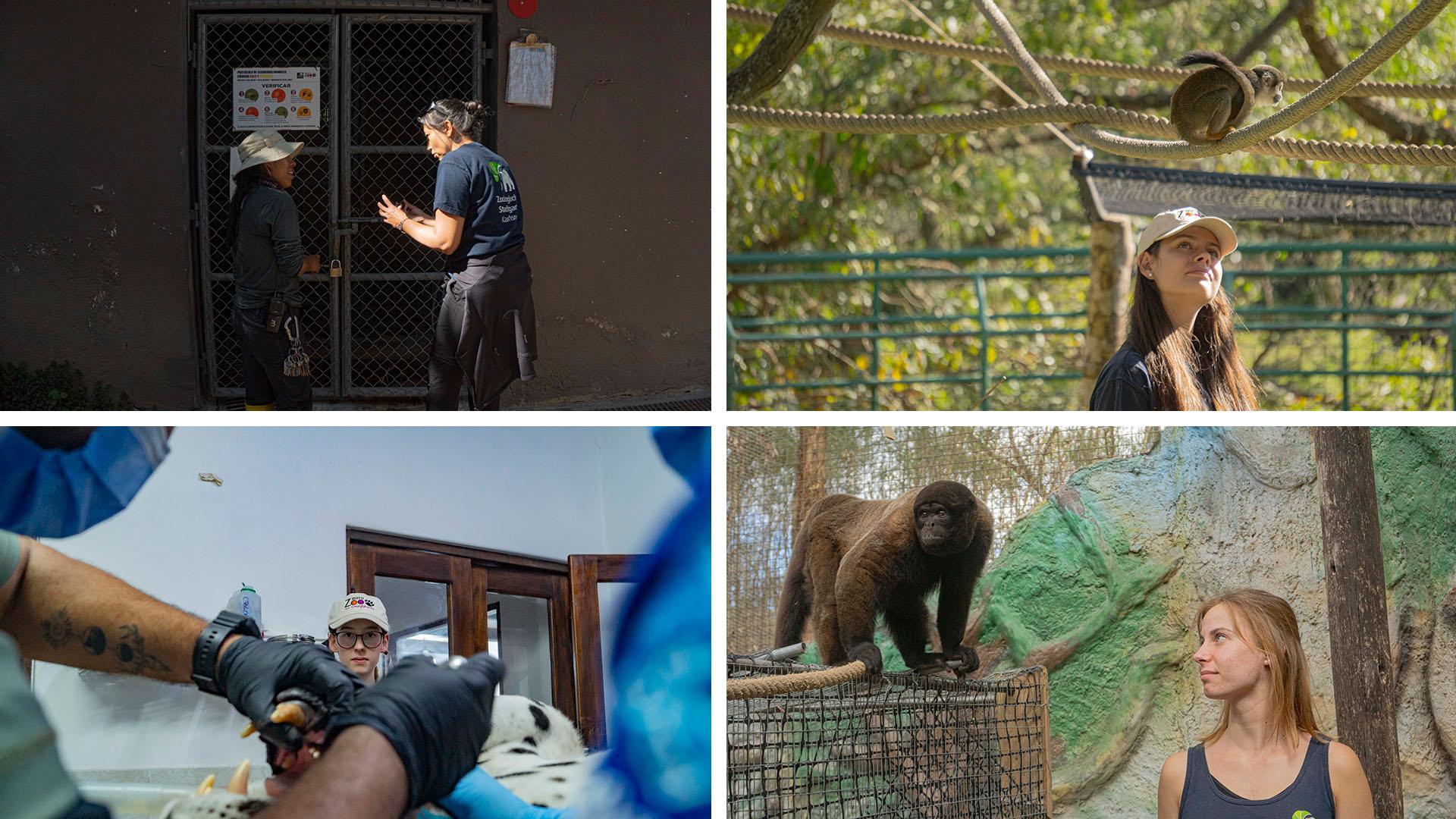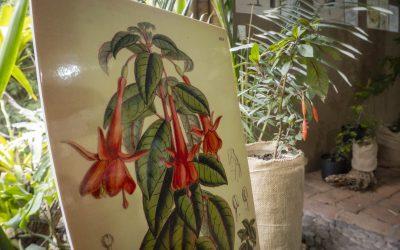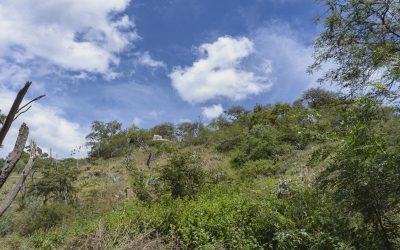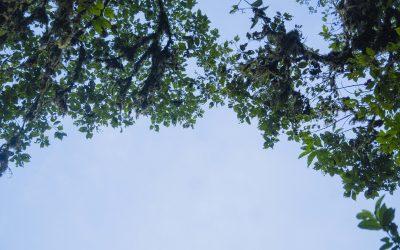Throughout July, four members of the Karlsruhe Zoo (Germany), three of them zookeepers in training and their coordinator, a specialist in training and animal care, were in Ecuador, developing different activities with the team of the Quito Zoo. This is possible thanks to the cooperation agreement that both institutions have had for several years.
During the first week of their stay in our country, Claudia, Lena, Dana, and Sarah visited the cloud forest reserve that the Karlsruhe Zoo has in the northwest of Pichincha, at Mindo, and which is managed by the Quito Zoo. There they carried out different activities in the forested areas and ecological restoration areas of the reserve (La Elenita and Mindo Mirador), cleaning in camping areas and readjusting the green classroom, where we plan to develop conservation education activities.
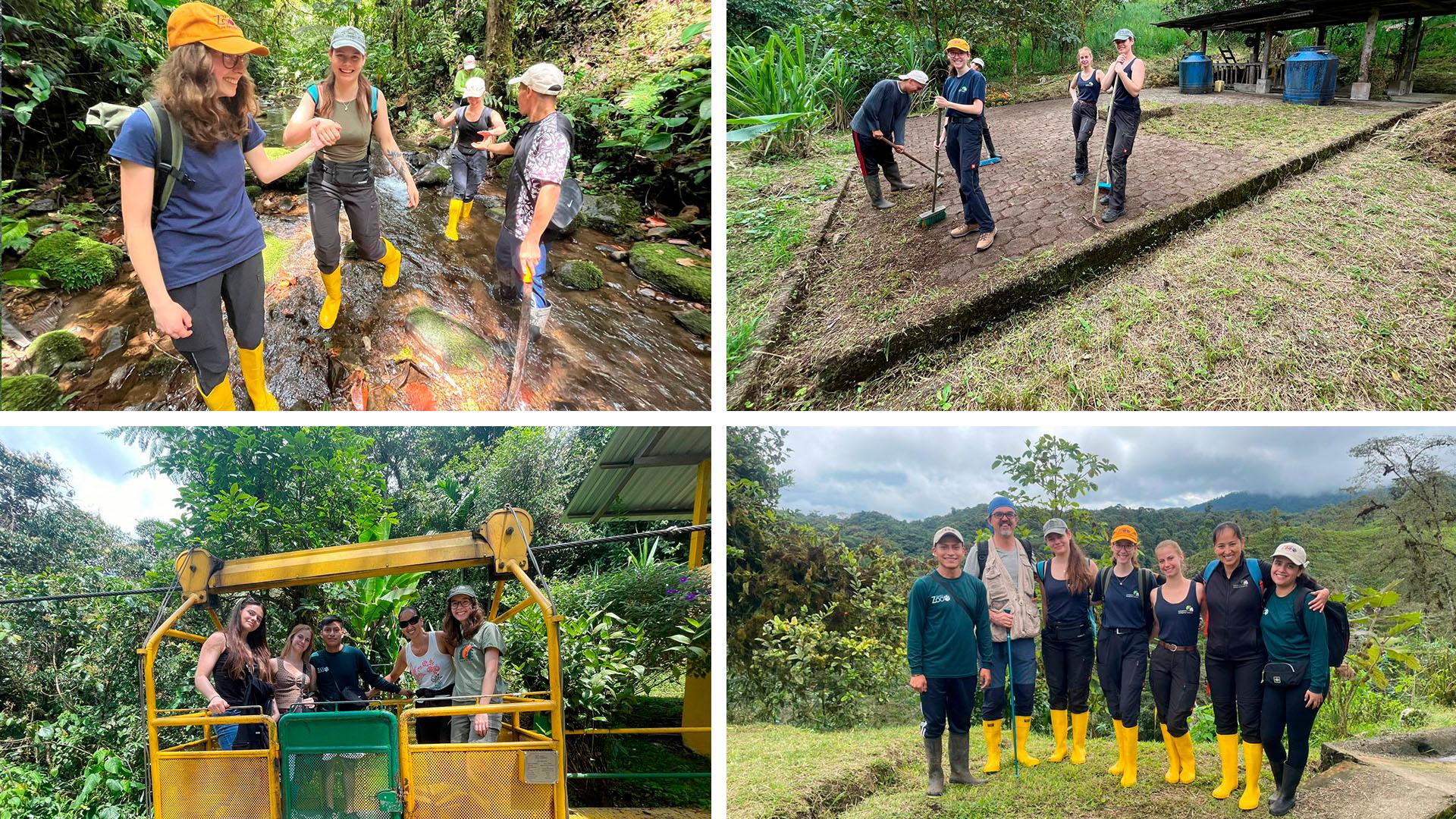
The visitors also planted wild cocoa trees (Theobroma angustifolium) at La Elenita. The fruit of this tree is eaten by the agouti (Dasyprocta punctata), the guan (Penelope ortoni), and several species of toucans, among other animals that live in the reserve. The planting of these trees is part of the natural feeders and trails for hummingbirds in the areas surrounding the house.
Their experience in Mindo ended with a visit to “Mindo Lindo” reserve, a territory where a reforestation process has been underway for 30 years. This consolidates a cloud forest more advanced in its succession, that is, a recovered forest that demonstrates that the conservation efforts we are making will have a great impact.
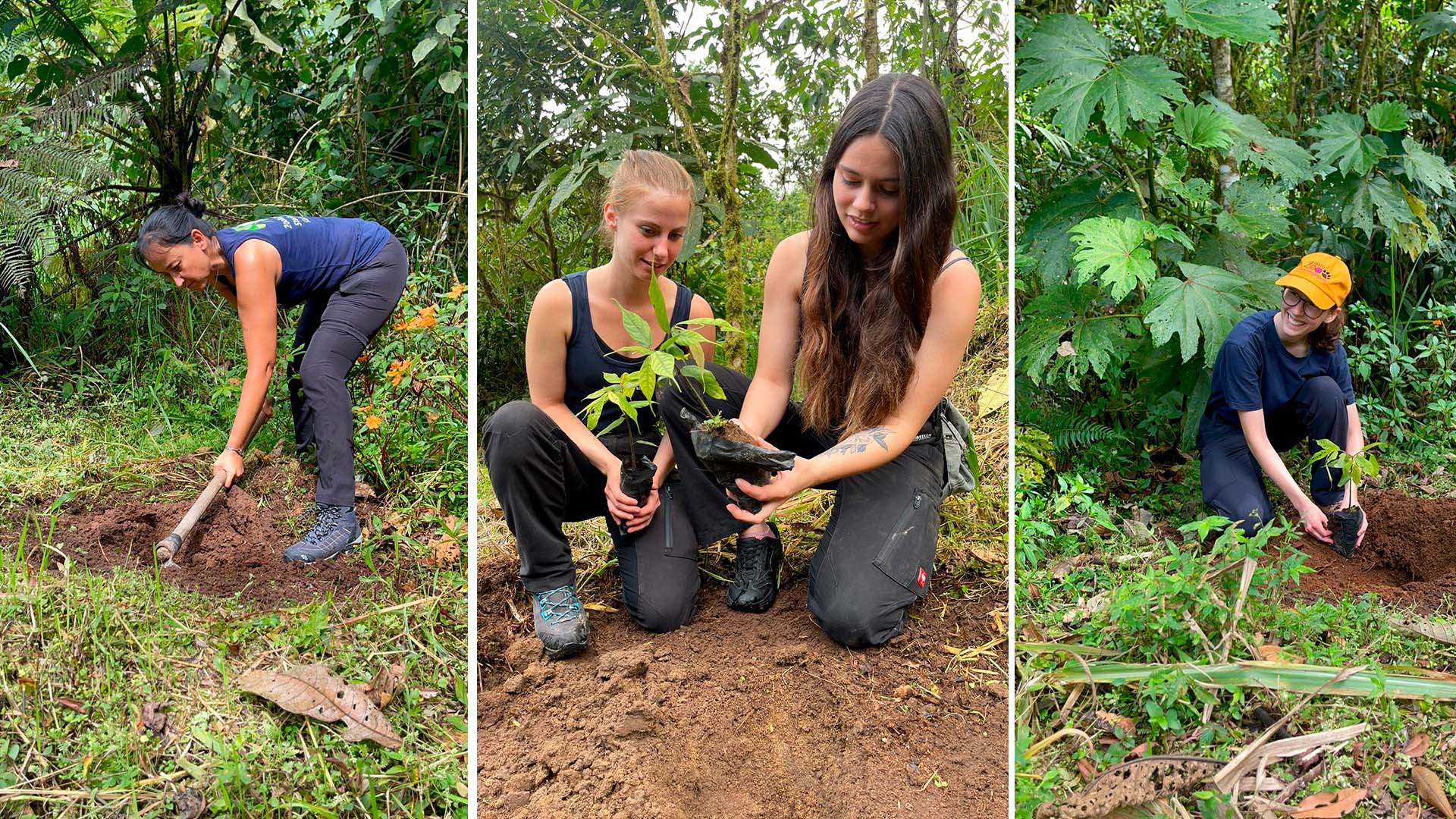
Immersed in QuitoZoo’s daily life
After the visit to the reserve in Mindo, Lena, Dana, and Sarah joined the team of zookeepers of QuitoZoo, to accompany the daily routines of care for the population of rescued animals of this institution. According to the distribution that this team has to develop their functions, they had the opportunity to work in the care of mammals, birds, reptiles, and amphibians.
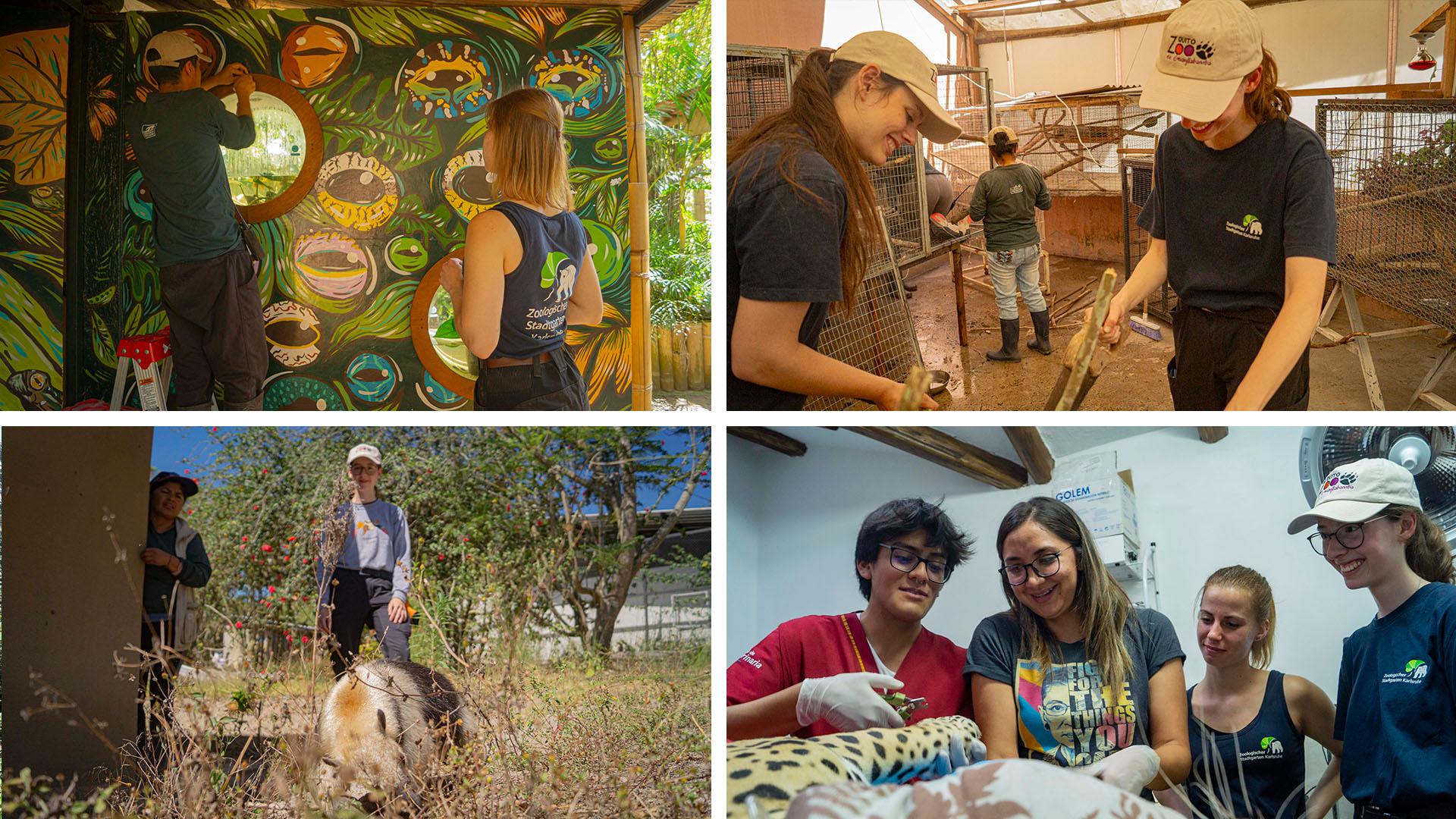
Claudia had the opportunity to travel to the Galapagos to visit some representative sites of the islands, but then she also joined the Quito Zoo team, with whom she shared valuable criteria on animal behavior management. For several days she accompanied the animal care, biology, and veterinary teams, to learn firsthand how the activities planned by the animal welfare department are carried out to provide effective care to the animals.
At the end of their experience in Ecuador, these four special guests to QuitoZoo expressed their satisfaction with everything they had experienced, learned, and shared with their hosts. They all agree that our country has incredible species of fauna and that the work of both zoos is key to environmental conservation.
